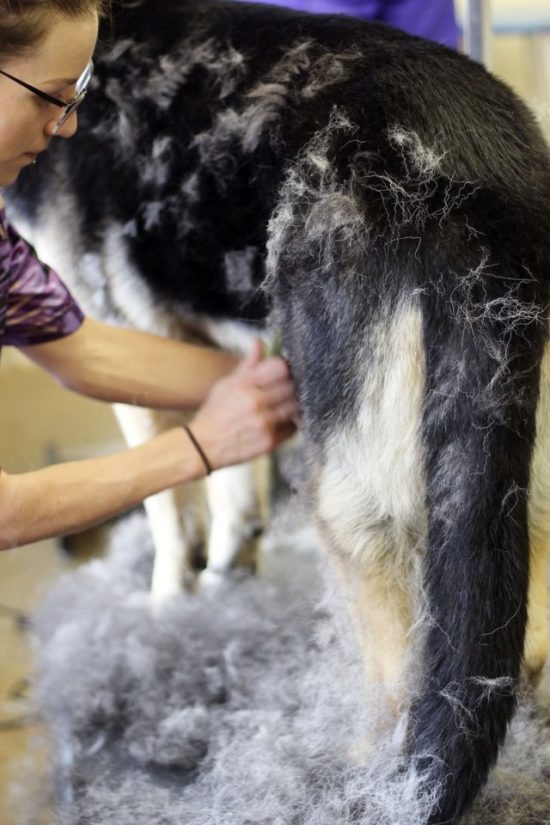Dogs, with their playful nature and affectionate personalities, deserve a comfortable and healthy life. However, like humans, they can experience skin problems from time to time, with dry skin being one of the most common issues. Dry skin can cause discomfort, scratching, and even lead to infections if left untreated. Addressing dry skin in dogs requires prompt attention and a comprehensive understanding of its causes. This detailed article aims to equip dog owners with the knowledge and practical solutions to help restore their beloved companions’ skin health.
:max_bytes(150000):strip_icc()/How-to-fix-dry-skin-4686908_final-0bb1260a300f4834b9cab01053d18cdb.png)
Image: www.byrdie.com
Understanding Dry Skin in Dogs
Dry skin is a condition characterized by a lack of moisture in the skin’s outer layers. Typically, sebum, a natural oil produced by the skin, acts as a protective barrier, keeping the skin hydrated and supple. However, various factors can disrupt sebum production leading to dry, flaky, and itchy skin.
Causes of Dry Skin in Dogs
- Allergies: Environmental allergies and food sensitivities can trigger inflammation in the skin, leading to dryness.
- Hypothyroidism: Underactive thyroid can lower the production of natural skin oils.
- Demodex mites: These microscopic parasites burrow in the hair follicles, causing skin irritation and dryness.
- Seasonal changes: Low humidity and cold temperatures can dry out the skin.
- Overbathing: Excessive bathing can strip away the skin’s natural oils.
- Sun exposure: As with humans, prolonged exposure to the sun can damage the skin and contribute to dryness.
- Diet: Deficiencies in essential fatty acids, vitamins, and minerals can lead to skin problems, including dryness.
Remedies for Dry Skin in Dogs
- Manage allergies: Identify and remove allergens from the dog’s environment or diet.
- Optimize thyroid function: Follow the veterinarian’s recommendations for medication and diet adjustments.
- Treat skin parasites: Consult the veterinarian for appropriate medications to exterminate demodex mites.
- Adjust bathing frequency: Limit bathing to once or twice per week, using a gentle, hypoallergenic shampoo.
- Use a humidifier: Increase humidity levels in the home, especially during the winter months.
- Protect from sun: If the dog spends extended periods outdoors, apply dog-safe sunscreen on exposed areas.
- Enhance the diet: Consider adding fish oil supplements or dietary sources rich in omega-3 fatty acids to promote healthy skin.
Moisturize the Skin
Emollients and moisturizers can provide essential hydration to dry skin. Look for pet-friendly formulations that are free from irritants and perfumes. Oatmeal-based products or coconut oil can soothe the skin while providing moisture. Apply a thin layer of moisturizer after bathing and as needed to keep the skin hydrated.
Other Considerations
- Avoid using human moisturizers on dogs, as they can contain harsh ingredients that can irritate the dog’s skin.
- Consider hypoallergenic bedding and toys to minimize allergens.
- Regularly brush the dog’s fur to remove dead skin cells and improve circulation.
- Avoid harsh cleaning products that can dry out the skin.
- Regular veterinary checkups can help monitor skin health and detect underlying causes of dry skin.
Conclusion
Dry skin, though common in dogs, can be effectively managed with proper care. Understanding the causes and implementing appropriate remedies can help alleviate discomfort, promote skin hydration, and ensure a healthier life for your four-legged companion. By considering the specific needs of your dog and maintaining these simple measures, you can restore their skin’s natural balance, keeping them happy, playful, and comfortable in their canine adventures. Remember, a healthy skin is a window to overall well-being, ensuring a long and fulfilling bond between you and your furry friend.

Image: iheartdogs.com
How To Fix Dry Skin In Dogs